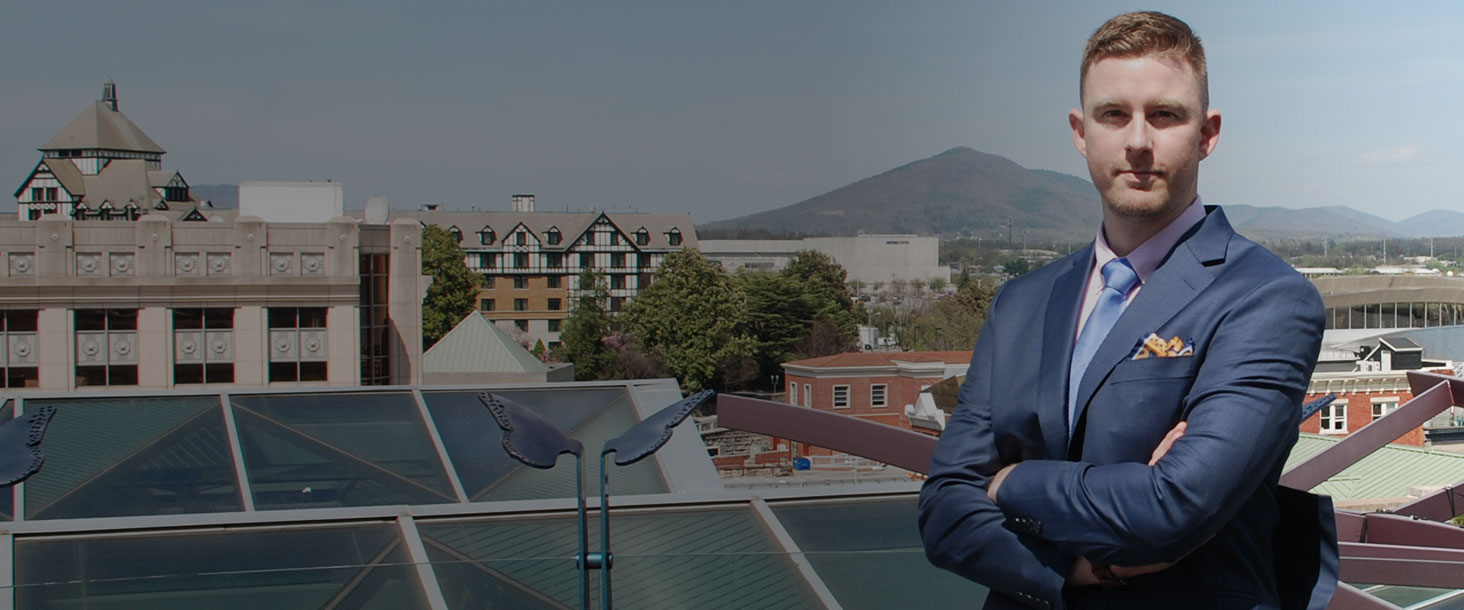A surprising – but welcomed – career in patient care, taken to the next level
Joshua Dodson’s career path wasn’t supposed to go this way.
Heading into college, the 2018 Nurse Anesthesia graduate was intent on pursuing a path to civil engineering, yet he wound up with a bachelor’s degree in German language and cultural studies. Then he married a nurse and, not really wanting to do anything with his German degree, was convinced to go to nursing school.
“I fell in love with providing patient care,” recalls Dodson. As he went through nursing school at the Medical University of South Carolina, he shadowed CRNAs, piquing his interest in the nurse anesthesia specialty: the science and art of sedation, and taking care of patients with complex conditions. After putting in his time as a critical care nurse in Roanoke, he found VCU’s Nurse Anesthesia program and, living nearly three hours outside of Richmond, was pleased to learn that the program offered innovative distance learning options Roanoke.
“With our roots in Southwest Virginia and three young children, it was great to know that I could attend a prestigious university yet not have to move away from home,” he says.
The initial admissions interview at VCU was challenging, he said, “but in a good way.”
“You could tell [the faculty] was interested in getting at the root of my interest in nurse anesthesia and ensuring that my knowledge and experience was credible, to make sure I would benefit from the program,” he says. “I really felt they cared about applicants and were trying to make sure they were ready for a program as intense as this one.”
The first few months of the program, he recalls, were rigorous. But the cohort works together and learns as a team. “We are fortunate in that we get along well and support each other,” he says. “Our main goal is not to see who can get the highest grade, but instead to help one another out and make sure everyone is successful. It’s a team mentality.”
Despite his classroom’s location three hours to the west of his Richmond cohort, the experience is very similar to being in Richmond, Dodson says. The Department of Nurse Anesthesia extended its graduate program in 2009 to Roanoke area residents in partnership with Carilion Clinic; classes are offered at the Roanoke Higher Education Center. Through two-way video conferencing and didactic presentations, students can ask questions in real time and communicate with professors. Sound and visuals, he says, “are top notch,” and technical difficulties are rare – and immediately fixed when they pop up.
In addition, like the Center for Research in Human Simulation in Richmond, the Carilion Center for Simulation, Research, and Patient Safety provides basic and advanced simulated laboratory experiences for the Roanoke site students. The site houses state-of-the art equipment including a full body, high-fidelity human simulator, an anesthesia machine, ultrasound training equipment, vascular access training devices and various anatomical models.
Nurse anesthesia professors are easily accessible, too – even at a distance. “We’ve had a couple teleconference meetings with professors on the same day we requested them,” Dodson notes. “I personally feel like we have same access as students in Richmond, minus the physical proximity of their office.” The Roanoke and Richmond cohorts also share information, study guides, and notes with one another. “We live, breathe and see each other almost 24/7/365.”
Like others in his cohort, Dodson notes the physiology class during first semester was the most complex and time-intensive, as students learn the dynamic interrelationships between form and function of cells and systems. For those classes, Nurse Anesthesia calls in VCU physiology professors who are “very articulate in lectures” and provide supplemental learning materials, Dodson says.
As the nurse anesthesia semesters rolled on, however, Dodson found he was viewing subjects that once seemed complicated and obtuse with far more clarity.
“Once you start applying the learned principals in the OR and gain clinical experience, all the classroom lessons come back to you and it makes so much more sense: being able to apply hemodynamic principals to your patients, understanding their individual pathological processes, and comprehending why your patients respond to medications in certain ways,” he says. “It has made me appreciate those 80-hour weeks of reading, exams and arduous work.”
After graduation, Dodson plans to stay in Roanoke – but he knows he could, if he wanted to, go anywhere and practice as a skilled CRNA. “The education from VCU is to a point where you can go anywhere in the world and practice anesthesia,” he says. “Students in our cohort are already receiving job offers and being recruited. That’s the upper hand that VCU gives you.”
“I am grateful for the opportunities VCU has been able to give me – not only being trained at the level they train us, but they have given us resources to be successful,” he says. “They set us up for success with everything they have done.”
On professors…
“Every professor is unique and different in their own way. I really like that VCU brings in CRNAs as guest lecturers because they are able to connect the principals we are learning with practical experiences they have had. They speak the same speak that we do.”
